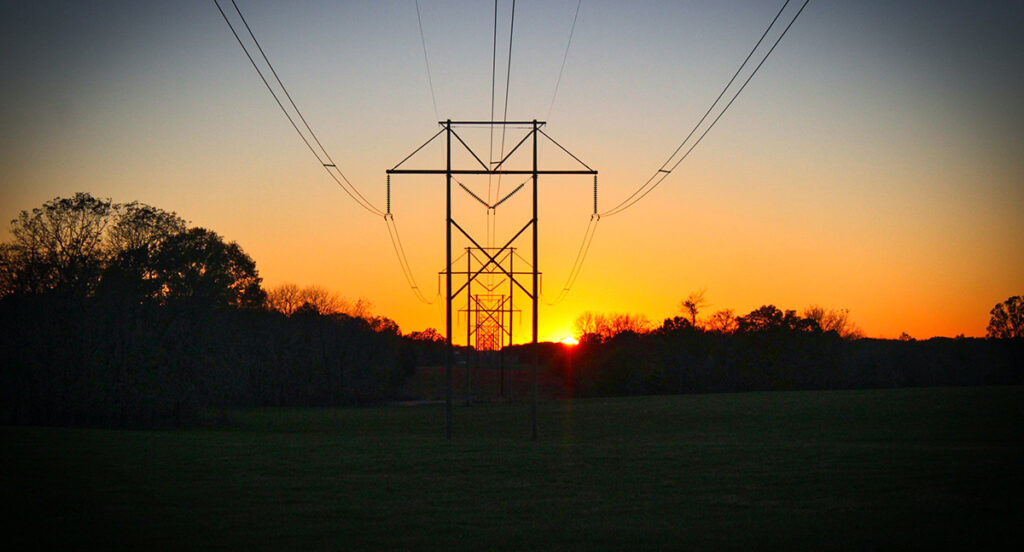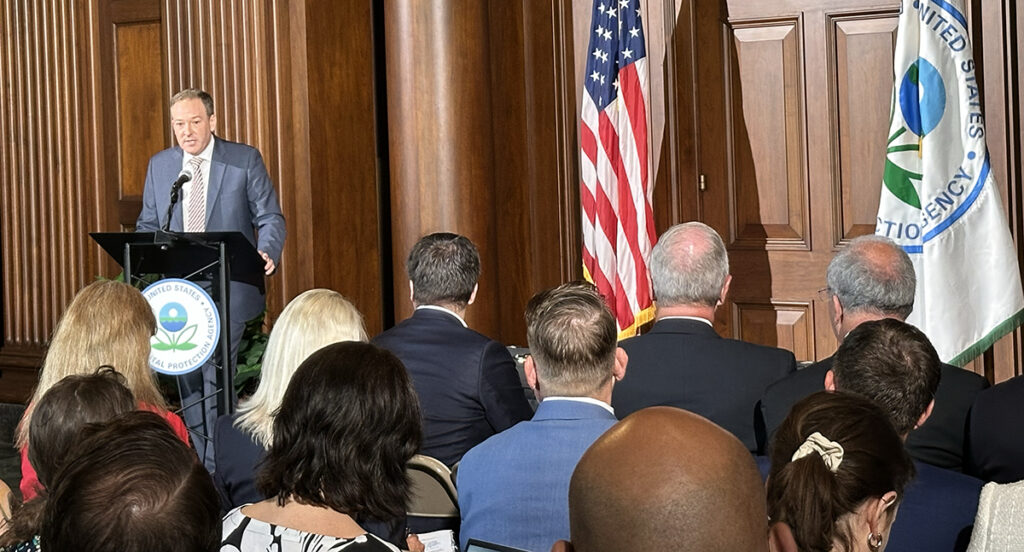
The Environmental Protection Agency on Wednesday proposed to repeal power sector greenhouse gas and mercury emissions rules that NRECA says threaten grid reliability and affordability for electric cooperatives and their members.
The rules, which the Biden administration finalized in 2024, “are unlawful, unrealistic and unachievable,” NRECA CEO Jim Matheson said. “And they will jeopardize the reliability of the electric grid for as long as they remain in effect.”
The proposed repeals “are a welcome course correction that will help electric co-ops reliably meet skyrocketing energy needs and keep the lights on at a cost local families and businesses can afford,” Matheson said.

The Trump administration’s main proposal for the greenhouse gas rule would repeal the 2024 regulation, which required many existing coal-fired plants and new natural gas-fueled plants to either install carbon capture and storage technologies, run at lower capacity or shut down. This proposal would also repeal all previously finalized greenhouse gas standards for fossil fuel power plants.
NRECA and its members fought the 2024 regulation in court, saying the Biden-era rule exceeded the EPA’s authority and required the use of inadequately demonstrated CCS technology. Four large electric grid operators echoed NRECA’s concerns, stating in a friend-of-the-court brief that the rule will drive the early closure of crucial generation sources.
The EPA on Wednesday also proposed repealing the Biden administration’s mercury and air rule. NRECA has called the rule a costly mandate with no appreciable health benefits that would force the premature retirement of some coal-fired units that are critical to electric reliability.
Comments are due Aug. 7 for the greenhouse gas proposal and Aug. 11 for the proposed mercury and air rule repeal.
“These rules force power plants into premature retirement and handcuff how often new natural gas plants can run,” Matheson said. “Both of them are textbook examples of a bad energy policy that compounds today’s reliability challenges.”
Molly Christian is a staff writer for NRECA.